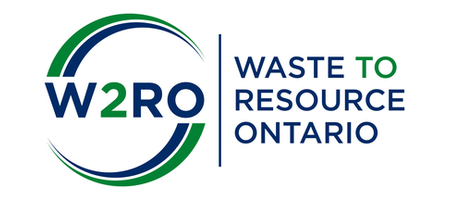
The OWMA continues to make progress on behalf of its members by working with the government to identify areas to modernize environmental compliance approvals (ECAs) for activities and facilities in the waste management sector.
The Ministry of the Environment and Climate Change (MOECC) intends to move forward with several reforms to approvals related to financial assurance, brownfields remediation, organics diversion, renewable natural gas and processing facilities.
MOECC held a meeting with industry representatives on April 4 to discuss the steps the provincial government is taking to modernize ECAs and register certain activities on the Environmental Activities and Sector Registry (EASR). There were several important updates at the meeting that concern the waste management sector.
First, the government says it will issue a Request for Bids near the end of April to solicit proposals on assessing the feasibility of moving 15 activities that involve air emissions to EASR registration over the next three years. MOECC staff said renewable natural gas will be a priority focus for this project.
Second, the government says it has an initiative “in progress” to move the assessment and payment for financial assurance away from a paper-based system to the electronic Environmental Compliance Approval System (eECAS).
Third, the government is conducting a pilot project to approve wastewater treatment technologies using ISO 14034 Environmental management -- Environmental technology verification (ETV). This standard helps to assess and verify innovative new technologies to which current government standards cannot be easily applied. Companies that receive verification under this standard will be able to accelerate the approval process for newly developed technologies.
MOECC staff say their intention is to use this same standard to assess new technologies in the waste management sector, specifically for anaerobic digestion, waste processing facilities and the remediation of contaminated sites.
Fourth, the government says it intends to soon post proposed amendments on the Environmental Registry to add clarifications to the Record of Site Condition (RSC) Regulation (Reg. 153/04) and to reduce the administrative burden associated with the development of brownfield sites. One way the government plans to ease the burden is using Qualified Professionals (QP) for routine sign-offs.
For example, one regulatory amendment under consideration would allow a QP to approve the deposit of fill on a property if he or she can demonstrate that the substances in the soil “do not exceed local naturally occurring concentrations of that substance and [the] soil was deposited prior to the Environmental Site Assessment work.”
After making a series of initial regulatory amendments, the government plans to create a “QP Supporting Framework.” MOECC is currently conducting a pilot project in which QPs are using a checklist to complete a Record of Site Condition (RSC) and a Risk Assessment (RA).
According to the government, MOECC is in the planning stages developing a “brownfields electronic service delivery” system to support RSC and RA administration.
Fifth, the government stated that it plans to reform several more approval processes for the waste management sector over the next 12 to 18 months. These include EASR registration, or even exemptions, for certain activities related to the following:
- Alternative fuels production, and biogas and bioenergy facilities;
- Waste transfer and processing facilities (possible exemptions could include EASR registration for municipal facilities that store waste);
- The organics diversion sector (possible exemptions could include EASR registration for community composting facilities).
All of these proposed reforms would support the government’s broader objective to modernize approvals. The government began its modernization efforts in 2011 with aim of replacing Certificates of Approval with ECAs and EASR registration. These efforts must align with the government’s broader priorities under Ontario’s Open for Business and Digital Governance initiatives, as well as the Commission on the Reform of Ontario’s Public Services, more commonly referred to as the Drummond Report.
